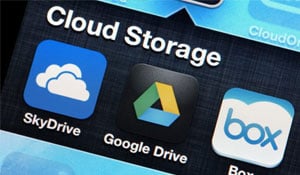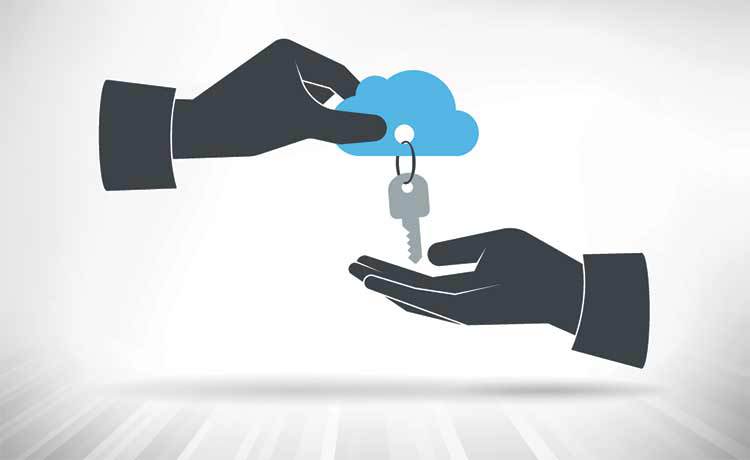Share this
What Do You Mean Dropbox / Onedrive / Google Drive isn’t Backup?
by Nathan.Fouarge on Jun 17, 2014 10:54:59 AM

I am seeing more and more people embracing ‘The Cloud’ to store their files, be it Dropbox, Onedrive, Google Drive, SkyDrive, Amazon Cloud, or any of the other file syncing services out there. Notice I say file syncing services and not cloud backup services. File syncing services have a lot of value and are very handy; I utilize a number of them for work and personal life for sharing files, collaborating with people, or syncing files across the numerous devices in my life. That being said, file syncing services are not backup, and I run separate backup routines to back up my data so that I know it is safe.
There are a number of very smart people out there that believe these cloud storage file syncing services are actually backup services. For instance, I was at a get-together this weekend and the topic of backup came up. I know it sounds like I go to some really fun parties, but the subject came up because the host’s wife, who is a paralegal, mentioned that she was tasked with figuring out how to get some data off some older SDLT tapes. When the discussion turned to occupations and I said I work for NovaStor and explained what I do, she perked up and instantly asked me about the tapes and how she could get the data off. I helped her with that task, which was not a huge issue, but her next comment caught my attention. She remarked how she didn’t understand why people still use tapes and backup software and why everyone doesn’t just put everything on Dropbox. The simplest explanation that I could come up with on the spot was reliability, flexibility, and security.
 How confident are you with the security of your cloud storage solution provider?
How confident are you with the security of your cloud storage solution provider?Why Reliability is an Issue
In regards to my reliability comment, a quick search of your favorite file sync service will show you numerous accounts of lost files and the inability to recover past versions of files (Cryptolocker anyone?). Yes every software is going to have some sort of shortfall, but these file sync services were never meant to be backup solutions; they were meant to sync and collaborate on files. They typically sync on the write of a new file, which is great when you are talking about a few files at a time and not your entire machine. Typically these syncing services do not give you an easy to read, comprehensible log of what was synced and what is available. Unlike file syncing services, software that is specifically written for backup should be able to handle the back up of your entire machine, give you an easy to read report of what is restorable, and verify that each file was backed up successfully and if not, alert you to the issue.
Reliability also means access to your data when you need it. With a file sync service, you do not have any say on when the service you chose goes down for maintenance, has login issues, locks your account because of an accounting error, your internet goes down, or any other number of things. If you have a local backup with a local backup software, you are in control of the entire process.
Let's Talk About Flexibility
When talking about flexibility, these file sync services were designed with a purpose, typically file syncing and some sort of collaboration. These services were not meant to backup your entire machine and be able to restore your entire machines from the ground up, or be able to recover your entire machine from a disaster where your server hardware blew up or your laptop is stolen or destroyed. Most of these file sync services have restrictions on the number of files, number of directories, path length, file names, type of files, and size of files that can be synced to them.
In contrast, a solution designed from the ground up to be backup-focused, will not have these type of limitations. The only things you can typically sync to, are your services cloud storage and the devices you are syncing with. With a good backup software you should be able to backup to multiple types of devices, USB, NAS, Tape, cloud services, and others.
Why Security Should be Top of Mind
The last quick point I had was security, which lately has become a very large concern in regards to data safety and exposure. How sure are you that the file syncing service you are using isn’t collaborating with whatever government agency is in the news today, that some disgruntle employee doesn’t have access to your data, or that some hacker doesn’t have full access to all of the account information of everyone on that file syncing service?
Cryptolocker has opened a lot of people’s eyes as to how important true backups are, and how vulnerable simple file syncing services can be to virus's like Cryptolocker. Though most file syncing services now have some sort of version controls in them, there are still a lot of holes. For example, your files could fall outside of the version window and inadvertently get changed by Cryptolocker and all the sudden all you are left with is garbage, encrypted data and the option to pay a ransom for your data. Keeping your data backed up in a compressed, encrypted format that only you know the encryption key for, can alleviate a lot of the exposure from 3rd parties to your backed up data. Doing multiple backups and keeping backups offsite along with onsite can help you to quickly recover from a Cryptolocker type of situation.
I am not trying to say that file syncing services are bad, quite the opposite. In fact, I use them all of the time and will continue to use them. Just don't believe that you have a backup service, when in fact you have a file syncing service. I would suggest that you backup your files that you are syncing with these file syncing services. Your Dropbox, Onedrive, Google Drive, etc. folders can all typically be backed up using normal file and image level backup types in most backup software including NovaBACKUP.
Share this
- Pre-Sales Questions (112)
- Tips and Tricks (95)
- Industry News (60)
- Reseller / MSP (37)
- Security Threats / Ransomware (29)
- Applications (28)
- Best Practices (26)
- Cloud Backup (25)
- Backup Videos (24)
- Disaster Recovery (24)
- Compliance / HIPAA (23)
- Storage Technology (21)
- Virtual Environments (17)
- Technology Updates / Releases (9)
- Infographics (8)
- Backup preparation (3)
- Company (US) (1)
- Events (1)
- Events (US) (1)
- Products (US) (1)
- March 2024 (2)
- February 2024 (2)
- January 2024 (1)
- December 2023 (1)
- November 2023 (1)
- October 2023 (1)
- September 2023 (1)
- August 2023 (1)
- July 2023 (1)
- May 2023 (1)
- March 2023 (3)
- February 2023 (2)
- January 2023 (3)
- December 2022 (1)
- November 2022 (2)
- October 2022 (2)
- September 2022 (2)
- August 2022 (2)
- July 2022 (1)
- June 2022 (1)
- April 2022 (1)
- March 2022 (2)
- February 2022 (1)
- January 2022 (1)
- December 2021 (1)
- November 2021 (1)
- September 2021 (1)
- August 2021 (1)
- July 2021 (1)
- June 2021 (2)
- May 2021 (2)
- April 2021 (1)
- March 2021 (2)
- February 2021 (1)
- January 2021 (2)
- December 2020 (1)
- November 2020 (1)
- October 2020 (2)
- September 2020 (4)
- August 2020 (2)
- July 2020 (1)
- June 2020 (1)
- May 2020 (1)
- April 2020 (1)
- March 2020 (3)
- February 2020 (2)
- January 2020 (2)
- December 2019 (1)
- November 2019 (1)
- October 2019 (1)
- August 2019 (1)
- July 2019 (1)
- June 2019 (1)
- April 2019 (1)
- February 2019 (1)
- January 2019 (1)
- December 2018 (1)
- November 2018 (2)
- August 2018 (3)
- July 2018 (4)
- June 2018 (2)
- April 2018 (2)
- March 2018 (2)
- February 2018 (2)
- January 2018 (3)
- December 2017 (1)
- September 2017 (1)
- May 2017 (2)
- April 2017 (5)
- March 2017 (4)
- February 2017 (1)
- January 2017 (1)
- December 2016 (1)
- November 2016 (1)
- October 2016 (2)
- September 2016 (1)
- August 2016 (3)
- July 2016 (2)
- June 2016 (3)
- May 2016 (7)
- April 2016 (8)
- March 2016 (1)
- February 2016 (3)
- January 2016 (12)
- December 2015 (7)
- November 2015 (6)
- October 2015 (6)
- September 2015 (2)
- August 2015 (4)
- July 2015 (2)
- June 2015 (2)
- May 2015 (1)
- April 2015 (5)
- March 2015 (3)
- February 2015 (4)
- January 2015 (2)
- October 2014 (5)
- September 2014 (8)
- August 2014 (5)
- July 2014 (8)
- June 2014 (5)
- May 2014 (5)
- April 2014 (9)
- March 2014 (7)
- February 2014 (7)
- January 2014 (5)
- December 2013 (5)
- October 2013 (7)
- September 2013 (2)
